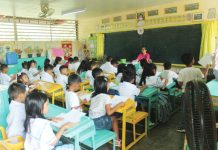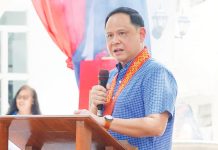
WE HAVE long been plagued by a punitive and often militarized approach to illegal drugs, thus the rise of community-based reformation programs offers a glimmer of hope — a shift from fear to compassion, from retribution to reintegration. And Western Visayas is showing the rest of the country that there is a better way forward.
At the heart of this quiet revolution is Balay Silangan, a reformation initiative led by the Philippine Drug Enforcement Agency (PDEA) in Region 6. Unlike traditional drug rehabilitation centers, which often cater only to those eligible under strict medical or legal guidelines, Balay Silangan opens its doors to small-time drug offenders — especially those who voluntarily surrender or enter plea-bargaining agreements. These are the individuals often left behind in our nation’s war on drugs: the poor, the marginalized, the forgotten.
According to PDEA-6, a total of 362 individuals have already completed the reformation program, while 106 are currently undergoing reformation. The region now boasts 79 operational Balay Silangan centers. These numbers represent lives redirected, families given a second chance, and communities slowly regaining their footing.
The strength of Balay Silangan lies in its holistic and localized approach. For the first month, participants are immersed in structured activities that focus on education, health, and psychosocial development. The following two months are devoted to skills training and employment readiness — from carpentry to soap-making — often designed by local government units (LGUs) based on the needs and economic realities of the community. It is not a one-size-fits-all model; it is flexible, responsive, and deeply rooted in barangay-level collaboration.
What makes this program particularly effective is its integration into barangay drug-clearing efforts, empowering communities to build self-policing capacities while maintaining a support structure for reforming individuals. “If there are small-time pushers who voluntarily surrender, there is a facility ready to cater for the reformation program,” said PDEA-6 spokesperson Graciella Tanaleon. That readiness is crucial in preventing recidivism and in showing that government presence can be felt through care, not coercion.
Still, challenges remain. Relapse is a reality that must be addressed with dedicated programs. Reformation is rarely linear, and support must continue even after completion of initial interventions. This calls for a broader, long-term investment from both national agencies and LGUs — not just in infrastructure and personnel, but in the political will to treat drug reform as a social issue rather than a criminal one.
Balay Silangan may not have the dramatic flair of arrests or seizures, but its impact is far more enduring. It redefines public safety as a shared community responsibility, where healing and opportunity are just as vital as enforcement.







